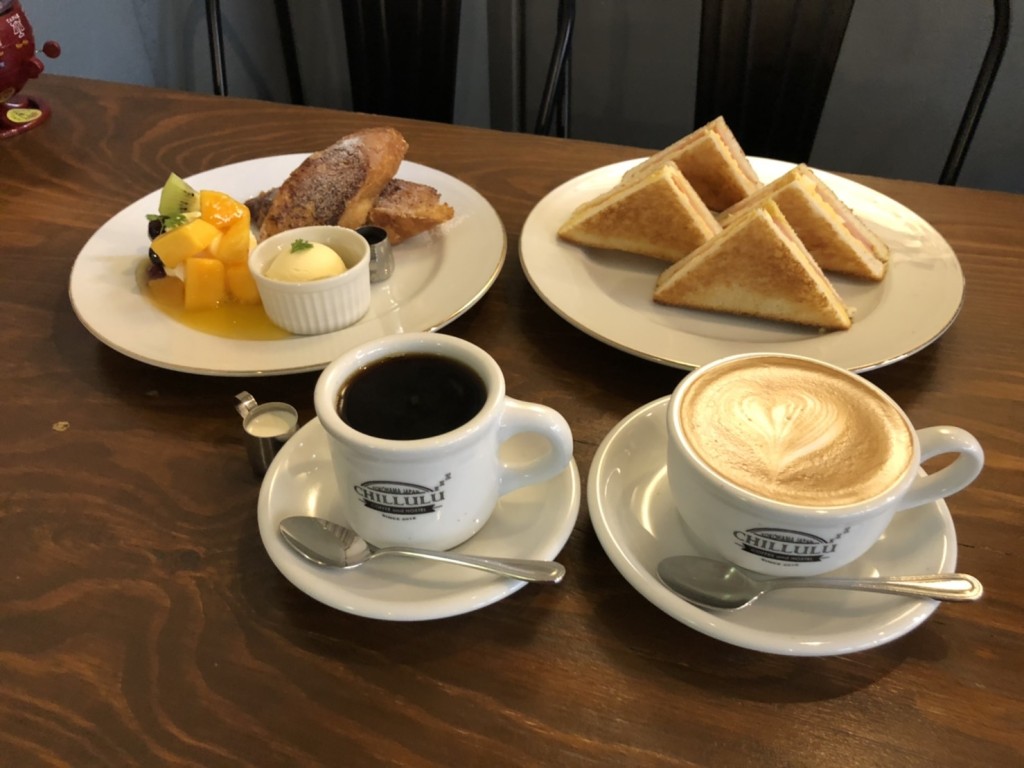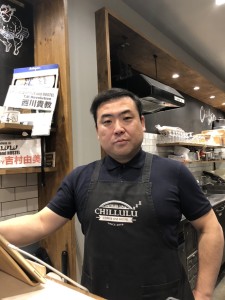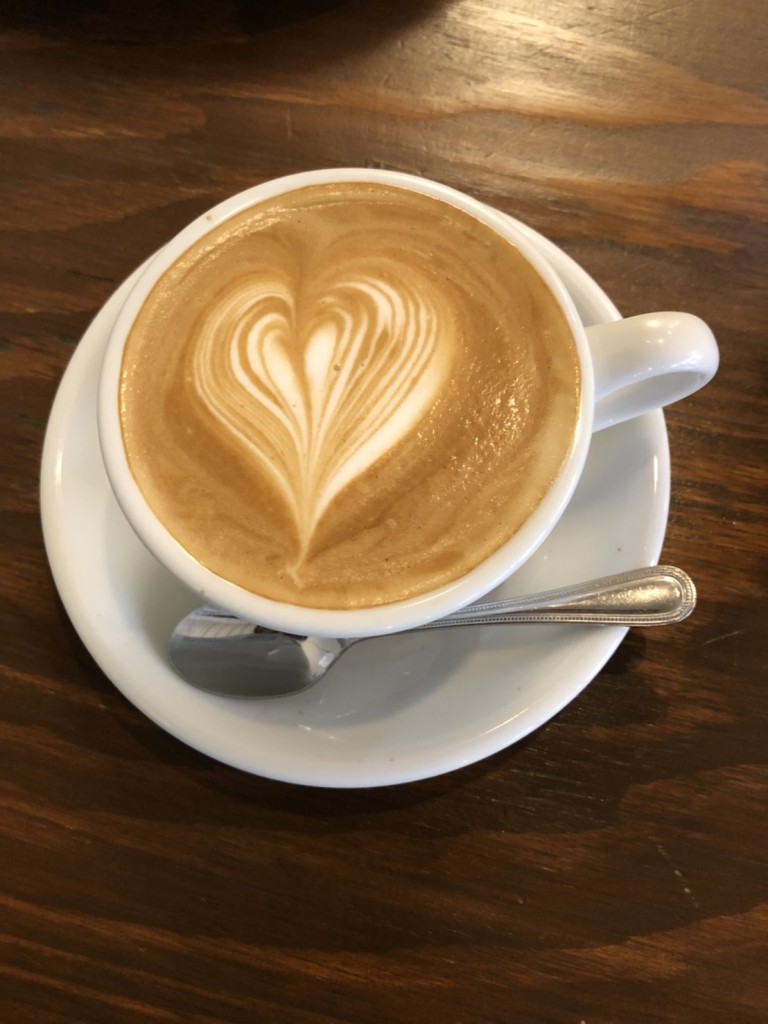It might surprise some to know that there is a trendy coffee shop tucked away in the middle of Chinatown’s numerous restaurants, shops and teahouses. Chillulu Coffee & Hostel is a specialty coffee shop with dormitory-type lodging offered on the 2nd floor. The name is a mix of the English word “chill” converted to a Japanese verb form. The intent is to convey that it’s a place where you can chill out in the usual bustle of the neighborhood. A wooden table handmade by the staff, a heart-shaped wall display made from colorful tape, and a pet-friendly terrace all convey that relaxed attitude. The international decor of the upstairs lodging encourages people of all nationalities and ages to feel welcome “chilling out” together in the environs. Mornings see the shop owners of Chinatown socializing over coffee prior to opening. On the weekday afternoon we visited, that calm vibe was evidenced by a small group of people chatting and a lone customer sipping coffee while working on his laptop.
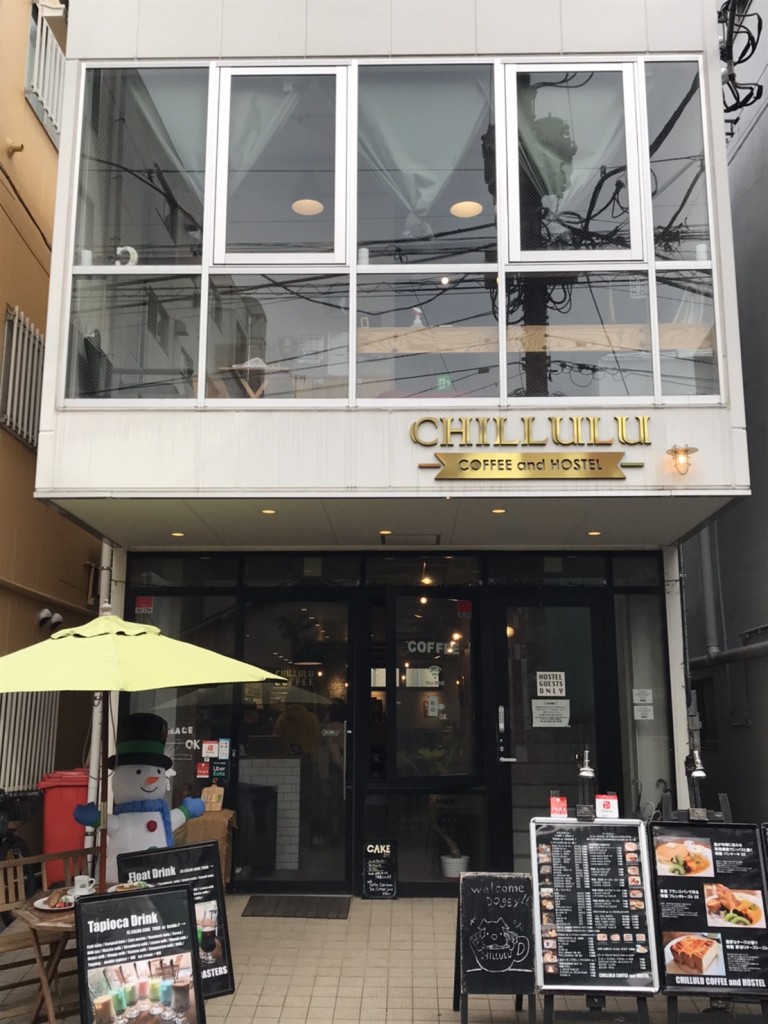 The owner of Chillulu, Yosuke Ito, has been enamored with coffee since his school days. The road he took prior to opening was far from a smooth one. The coffee beans used at his establishment are all purchased directly from Latin American farms. As a 20-year old exchange student in New York, Ito learned of the poverty of coffee farmers in Ecuador. Quite a few of the farmers fled Ecuador in search of a better life. After learning about the tragic reality of those producing his beloved coffee, he wanted to do something to help. From this, his coffee business was born.
The owner of Chillulu, Yosuke Ito, has been enamored with coffee since his school days. The road he took prior to opening was far from a smooth one. The coffee beans used at his establishment are all purchased directly from Latin American farms. As a 20-year old exchange student in New York, Ito learned of the poverty of coffee farmers in Ecuador. Quite a few of the farmers fled Ecuador in search of a better life. After learning about the tragic reality of those producing his beloved coffee, he wanted to do something to help. From this, his coffee business was born.
After stints in the automotive industry and further studies abroad at Peking University, he returned to Japan to start his business in earnest. Remembering his time in New York, he traveled to South America to visit coffee plantations. He negotiated persistently with farmers that had been selling high quality beans to large companies at low prices. He gradually gained their trust by offering a fair price. Ito purchased the beans, roasted them, and sold coffee made with them on Tokyo street corners. He was able to sell it at a number of pachinko parlors and fans of his coffee slowly grew. His reputation grew, too, and the business began to take off. As fair trade was gaining traction in South America, Ito expanded his negotiations to countries in Central America, such as Costa Rica and Panama, where pricing wasn’t yet as equitable.
Given this mindset, patrons of Chillulu can expect coffee from high quality beans roasted in-house. It is prepared by skilled staff that hand-drip it on taking your order. Our group chose the most popular menu item, Chillulu Blend Coffee (¥500), and a Hazelnut Latte (¥650). The pleasantly aromatic cup of blend coffee balanced sweetness with a deep richness that was devoid of bitterness. Without exaggeration, it matched our taste perfectly. Not to be outdone, the latte’s sweet milky flavor worked well with the full-bodied coffee. Other drinks on the menu include Masala Chai Tea (¥650) and 16 types of tapioca beverages.
In addition to great coffee there are many excellent food options. We tried the Mango Pancakes with Fresh Seasonal Fruit (¥1250). Unlike the souffle-like style nowadays, the firm dough was reminiscent of old-school cooking methods. The pancakes were evenly cooked in a copper pan. Besides mango, toppings included kiwi fruit, ice cream, fresh cream, maple syrup and honey, making for a substantial meal. Our second choice was a Ham & Egg Sandwich (M ¥700 / L ¥850). They also had a French toast offering similar to the pancakes and much more that we wanted to try, but we’ll save that for our next visit.
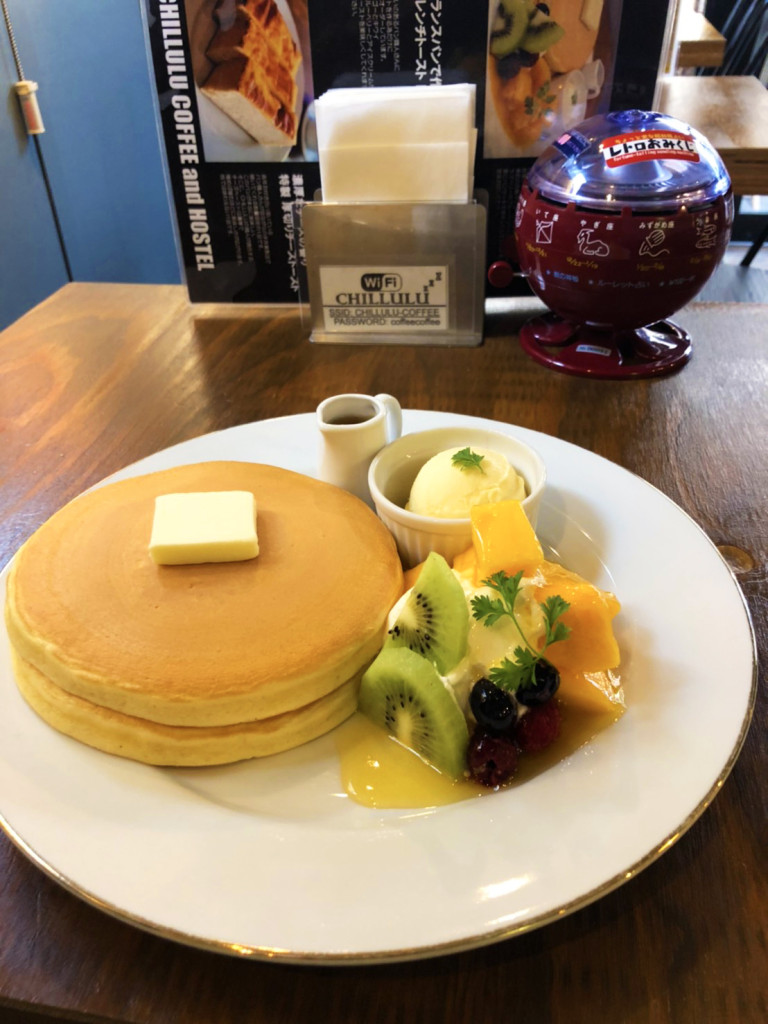 Chillulu opened in Chinatown in December of 2016. Ito simultaneously runs a business in Tokyo’s Azubu area called Hostel & Coffee Shop Zabutton that follows the same business model. From the time he was a child, Ito notes, he has memories of his grandmother in Yokohama taking him to Chinatown. He wants overseas visitors to experience the charm of not only places like Hakone and Kamakura, but also Yokohama. He launched this business here because he wanted to give something back to the city, ignoring notions that doing so outside of Tokyo would be difficult.
Chillulu opened in Chinatown in December of 2016. Ito simultaneously runs a business in Tokyo’s Azubu area called Hostel & Coffee Shop Zabutton that follows the same business model. From the time he was a child, Ito notes, he has memories of his grandmother in Yokohama taking him to Chinatown. He wants overseas visitors to experience the charm of not only places like Hakone and Kamakura, but also Yokohama. He launched this business here because he wanted to give something back to the city, ignoring notions that doing so outside of Tokyo would be difficult.
With 3 years having passed since its launch, he tells me about a Japanese and British couple who met here, later married and returned on their honeymoon. In another episode at the cafe, a chance meeting between a Japanese businessman and a Belgian chocolatier resulted in the businessman quitting his job and becoming an award-winning chocolatier in Belgium. Ito encourages his staff to take initiative and interact with international clientele. His thinking is that through exposure to other cultures, their perspectives of the world will expand. Ito further participates in a variety of charitable endeavors. “I ultimately hope for peace in the world through coffee”, says Ito. Hearing those words while sipping his coffee sure makes the flavor taste richer.


